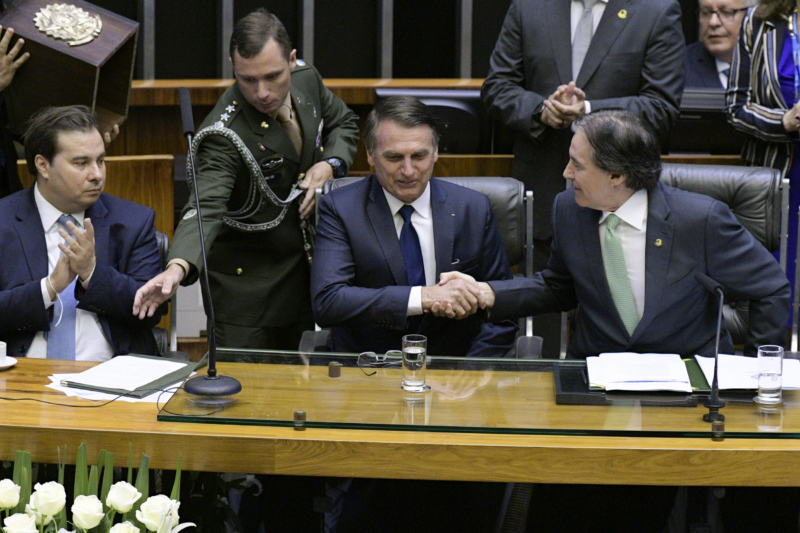Adios, Amigos
As Hillary Clinton travels through Latin America this week, the U.S. secretary of state will find it profoundly transformed from the relatively serene region she encountered as first lady in the 1990s.
When Jair Bolsonaro was sworn in as Brazil’s president on New Year’s Day, he announced that, “One of my priorities is to protect and reinvigorate Brazilian democracy.”
The hardline former army captain was known for many things during his 27 years in Brazil’s Congress, but champion of democracy was not one of them. Bolsonaro expressed nostalgia for Brazil’s military dictatorship and dedicated his vote to impeach then-President Dilma Rousseff to the colonel who led a dictatorship-era torture squad.
Within Brazil, Bolsonaro’s authoritarian rhetoric was hotly debated during the presidential campaign. His supporters embraced his brash promises to bring law and order to a country beset by crime, corruption and economic struggles. His opponents feared a resurgence of military rule or the emergence of a Duterte-style police state. Bolsonaro’s decision to populate his administration with retired generals hardly eased concerns.
Yet elsewhere in Latin America, where prosecutors are still investigating human-rights abuses committed by Cold War dictatorships, Bolsonaro’s inauguration provoked surprisingly little alarm. That is in part because many observers regard the threat as overblown. Since his election, Bolsonaro has affirmed his commitment to Brazil’s constitution. He has appointed federal Judge Sergio Moro, an anti-corruption crusader, as his justice minister. The country’s democratic institutions, moreover, have matured since Brazil’s 1985 return to democracy.
Nonetheless, it is worth asking how willing Brazil’s neighbors are to stand up for democratic principles should the need arise. Bolsonaro’s inaugural address had a messianic streak — borne of the president’s personalist style and religious fervor. It is uncertain how he might respond to an unwieldy or obstructionist legislature, an uncooperative court or an opposition protest movement standing in the way of his political agenda, which includes ambitious pro-market reforms and a sharp right turn on guns and social issues.
In 2001, the countries of the Americas declared democracy the only acceptable form of government. At multilateral bodies such as the Organization of American States, it is the price of admission. Latin American governments in recent years have shown a heartening — if not always consistent — willingness to act on these commitments.
In 2009, after soldiers in Tegucigalpa deposed President Manuel Zelaya, OAS members quickly suspended Honduras. And in the face of the democratic collapse in Venezuela, Latin American governments have taken unprecedented, though belated, actions. The ad hoc Lima Group, comprising the region’s biggest countries, refused to recognize the sham reelection of Venezuelan strongman Nicolás Maduro. In September, five Latin American leaders recommended Maduro be investigated by the International Criminal Court for crimes against humanity.
Nevertheless, there are reasons to doubt Latin America’s willingness to adopt a similar approach with Brazil.
[...]
As Hillary Clinton travels through Latin America this week, the U.S. secretary of state will find it profoundly transformed from the relatively serene region she encountered as first lady in the 1990s.
What should we expect from a newly powerful Brazil? Does the country have the capacity and leadership to be a central actor in addressing critical global and regional problems?
During last month’s Rio Group summit in Mexico, Latin American leaders agreed to form a new regional bloc that would exclude the United States and Canada. Is this new group needed?
 Senado Federal / Flickr / CC BY 2.0
Senado Federal / Flickr / CC BY 2.0